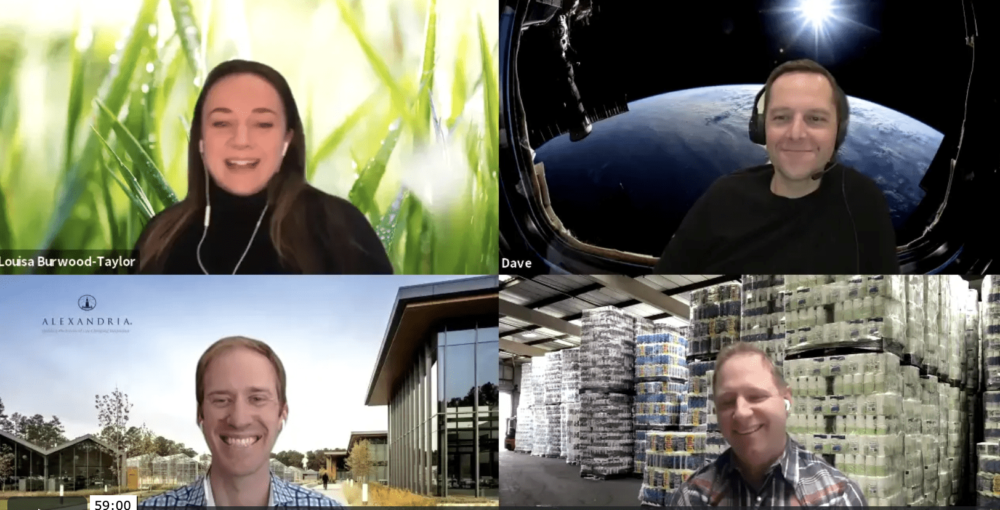Editor’s Note: This was the first in a new series of webinars for AgFunder’s investors and close community in an effort to try and navigate the Covid-19 crisis together. You can find the other recordings over on Vimeo here.
These are unprecedented times; if we had a dollar for every time we’ve heard that in recent weeks… But there might not be a better way to describe the situation we are in, especially as there’s so much uncertainty in the short, medium and long term for everyone on our planet.
The agrifood industry is for sure facing unprecedented challenges with various warnings from the United Nations this week that we are facing acute food insecurity. The threat of a global recession also looms large.
What does this mean for agrifood investing?
We’re grateful to have some amazing LPs in our funds and entrepreneurs in our portfolio so, in an effort to try and navigate how our growing but still relatively small asset class gets through the Covid-19 crisis, we’ve launched a series of digital talks for our community.
We held the first in our new What The Fork? AgFunder LIVE series last week with a focus on the future of agrifood investing and the technology trends we can expect to arise from it.
Joining AgFunder’s Rob Leclerc and Louisa Burwood-Taylor were Blake Stevens, Principal at Alexandria Investments and agtech lead at the VC arm of real estate juggernaut and AgFunder LP Alexandria Real Estate (NYSE: ARE), and Dave Friedberg, founder of Climate Corporation, agtech’s first unicorn, now running his own multi-asset class investment company The Production Board.
Above is the video for you to watch. Below is the podcast version over on Future Food for those of you that don’t want to see our faces and silly Zoom backgrounds. But here are some of the key talking points and takeaways:
- This is Survival Mode:
- Funding is tight. Many startups are or will deal with undercapitalization in the coming months as rounds are significantly reduced in size or pulled completely.
- “Survival” is the #1 business goal right now. Investors and startups must focus on the killer, must-have products.
- It’s all about business model right now, less about technology:
- This was contested by a listener but the idea that Dave Friedberg and others purported was that any ag technology, regardless of how amazing it is, deals with the same challenges: longer adoption curves, a long-tail cycle, and a longer R&D process due to cuts. Where they will win is in their business model.
- Agtech companies that cannot find ways to accelerate the 10-30-60 adoption benchmark (that’s the concept that farmers will use a product on 10% of their crop in the first year, then 30% and 60% in subsequent years) or to reduce risk while achieving and adjusting their R&D milestones in a rapidly changing market are going to be challenged.
- Supply chains need to localize:
- Globalization will be challenged and this is shifting thinking (and investments) to localized/nationalized supply and distribution systems. The main trends supporting this shift are supply chain assurance, food security, and geopolitical reliance.
- Back to basics:
- The crisis and unemployment rates will hit luxury markets and luxury food products.
- Shift from “luxury/nice-to-have” to “basic/day to day/must-have” – in consumer and so also investment behavior
- Where does sustainability lie in the hierarchy of needs now? Differing views here.
- If the financial crisis brought more regulations, Covid-19 will ease the regulatory burden. Regulations are expensive.
- Timeline to recovery – 12-18 months – but certain agri-foodtech trends will proliferate:
- Robotics to alleviate added labor shortage challenges
- Food e-commerce, but will it last post-crisis?
- Localized food production including indoor ag
- Food as medicine
- Check out the video for other tech thoughts!
- It’s still a good time to invest in agri-foodtech:
- Agrifood is a defensive sector – non-correlated with public markets and essential industry.
- Nearly 70% of the 100 attendees said they were interested in investing in agri-foodtech startups in the short to medium term.
- There will be attractive opportunities with significant drops in valuations alongside strong potential for growth in the right categories.
What do you think of our first digitalk? Give us your feedback!





